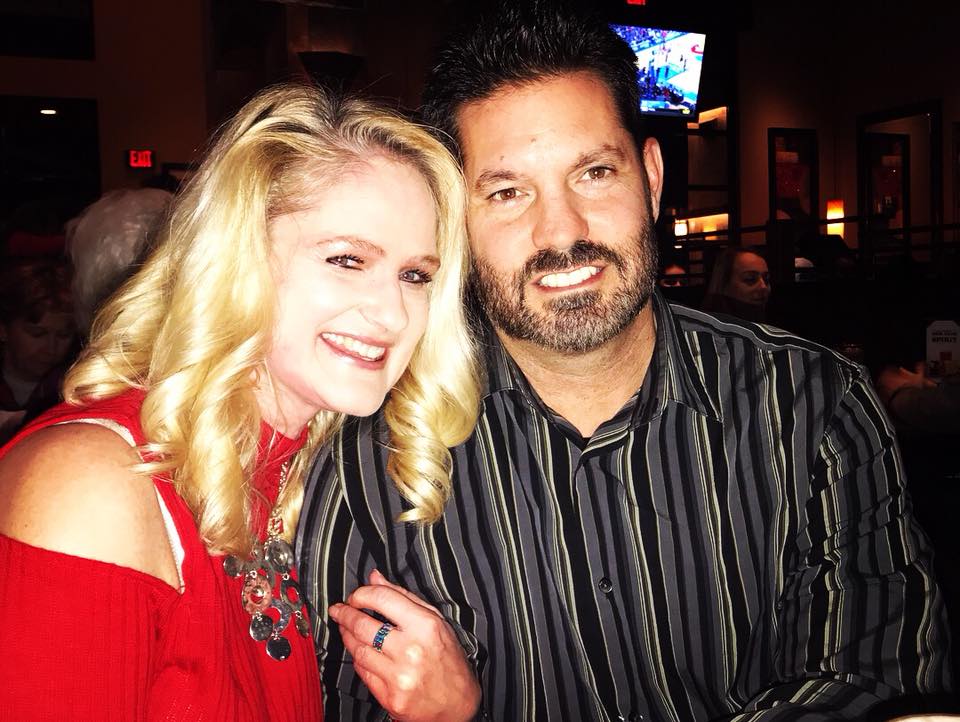 I watch the Today Show every morning. And a few days ago, they had a really interesting segment that discussed whether or not people in marriages should undergo a “performance review.” While you might be shaking your head and doubling over with uncontrollable laughter at the mere thought of it, I want you to stop and think about it after you’re done laughing. Sure, it sounds silly. But is it really? Let’s think about this for a second. Why do businesses do performance reviews of their employees? Well, they do it so they can keep the productivity at a peak level, right? What would happen if no one ever had a critique of the job they were doing? Would they still put in their best effort, or would they slack off? I suppose the answer varies from person to person. As an online dating coach in Dayton, I know first hand that some people just naturally put in 100% effort, while others will look for every excuse to be lazy if they don’t get caught. But the performance review at least holds people accountable for their actions. And it rewards and punishes accordingly. Some businesses even do a 360 degree type of performance review where they invite employee feedback to assess the effectiveness of the leadership within the organization. In my opinion, this is brilliant. Not only does it hold the employees responsible for their behavior, it also does the same for the management. So, we’re all familiar with the concept of performance reviews, and as an online dating coach, I think they're a brilliant idea. You may or may not like them, but they do serve a purpose. I assume the only people who don’t like them are the ones who are not doing their job to the best of their ability. They somehow know they will not get a good review. Not only am I an online dating coach, I also teach communication and relationship classes for a living. And one of the things I always say to my students is this: “Relationships are like plants. If you don’t water them, attend to them, and care for them daily, they will die.” That seems like an obvious statement when it’s about plants. But how many people look at their relationships the same way? How many people water and feed their relationship? Not a lot. Unfortunately, I think a lot of people have the following pattern: in the beginning of a relationship, they put forth their best “self.” They dress well, speak well, and do all the “right” things. But then reality sets in, and people get lazy. It’s almost as if they’re thinking “Ahhhh…I finally ‘got’ them … my work here is done!” Let’s face it – that when the work starts! In order to be the best version of yourself and have the best relationship, you have to put in effort! It’s no different than what it takes to be healthy and fit - you have to put in effort to eat well and exercise daily. In order to be successful at your career and advance, you have to put in time and energy at your job. And in order to have a successful, happy relationships and/or marriage, it takes effort! If both people don’t put forth their best efforts in relationships, then what happens? The relationship suffers, and the people suffer. So, wouldn’t it be a good idea to put in some effort to avert disaster? In the long run, it’s a small price to pay. It’s sort of like keeping a close eye on your weight so you don’t accidentally gain 300 pounds and develop health problems like diabetes or heart disease. It’s a lot easier to fix a smaller problem than it is a huge one. What are the things that should go into a relationship performance review? Here are some key points that are tops on my list. I base this not only on my education and professional background, but also on my own personal experience. 1. Empathy I think we might have world peace if everyone practiced empathy. Sure, that might be an exaggeration, but maybe not. Regardless, both partners need to try to understand each other’s point of view. Even if you can’t relate to what the other person is saying, you still need to convey that you are trying. And if all else fails, then you both should agree to disagree…but do it with mutual respect. 2. Listening Being a good listener is more than just keeping your mouth shut. It involves paraphrasing, asking probing questions, seeking out understanding of both the content of the message and the emotion/feelings behind it. In short, being a good listener says, “I’m here. I’m present. You’re important to me.” 3. Conflict management skills There are many ways people handle conflict, and most of them are not productive. Avoiding, competing, and accommodating are generally destructive to relationships. Compromising is a better strategy, but ultimately you want to collaborate with one another by viewing yourself as a team who is seeking a “win-win” result, not a “win-lose” one. 4. Patience & Acceptance Everyone is different. So, in order to have peaceful relationships, we have to have patience with other people’s behavior. We also need to accept the person for who they are – not who you want them to be. As a dating coach, I know most people don't have these qualities. 5. Self-reflection & Personal responsibility How aware is the person of their own actions? Do they have the ability to look at themselves and see what they are doing wrong or what they need to change? Are they able to take personal responsibility and follow up by changing their actions? Some people find it difficult to own up to their behaviors, because they see it as a loss of power. But it takes maturity to admit when you’re wrong and make things right. If I were going to actually design an assessment form for a relationship performance review, I would include a lot more detail. But this is a good starting point. If you remember nothing else, think about this: a successful relationship occurs when both people put the other person’s needs equal to – or even before – their own. ****If you need an online dating coach or dating coach - especially in the Dayton area - please let me know. I'd love to help you!****
0 Comments
 “Actions speak louder than words.” Everyone has heard that expression before. But have you really thought about what it means? According to research, approximately 80-90% of the meaning of a message lies in the nonverbal part of it. That’s why it is so important to communication, and even more vital to understand the nature of it. As an online dating coach in Dayton, I know how important body language is when it comes to relationships. But are you actually aware of your own body language? And how good are you at reading other people’s body language? In this blog, I want talk about 5 little-known facts about nonverbal communication that you might not know: 1. It’s culturally bound – mostly. The only nonverbal behaviors that are universal throughout the world are facial expressions -the expressions of anger, happiness, sadness, disgust, surprise, and fear are basic to all humans. However, the rest of them are specific to certain cultures. In the United States, eye contact is considered respectful. Parents tell their children to look at them when they speak because it is a sign that someone is paying attention to them. However, in some Middle Eastern and Asian cultures, eye contact is to be avoided because it might signal an inappropriate romantic interest – or it may be just plain inappropriate in a social interaction. Moreover, certain hand signals mean different things in different cultures. For example, my sister used to travel to India a lot for business. At the time, her boss was a very enthusiastic fellow, and he always wanted people to give him a “thumbs up” sign at the end of every meeting. One day, during a video conference with people from India, he told everyone (including the Indians) to give a thumbs up. So of course, all the Americans put up their thumbs, but the Indians just stared with blank looks on their faces, seeming confused. But then the boss encouraged the Indians to give the thumbs up again, and so they slowly and reluctantly did. As it turns out, my sister later learned that in India, that is the same as giving the middle finger in the United States. Whoops. Imagine if you happened to be out on a date with someone from a different country and you accidentally offend them with your body language? As an online dating coach in Dayton, I've seen it all! 2. The ability to read body language is related to emotional/social intelligence. I have always been the kind of person who is very self-aware and is able to read people very well. Because of that, I used to be confused when some people couldn’t do that. As I progressed with my education, I realized that the ability to read language is linked to emotional intelligence (EQ). Therefore, for people like me, it comes easy. However, on the other end of the spectrum, many people with autism cannot read people’s nonverbals very well (luckily there are apps that help with that these days). Actually, there are many different kinds of intelligences. Some people can solve the Rubik’s cube with their eyes closed or solve calculus problems in their sleep (I’m not one of those people), but they can’t read people. It doesn’t make either type of person smarter than the other; they’re just different. So, if reading body language comes easy to you, you might be frustrated with people who can’t do it well. And as a dating coach, I know that can be a problem! But you probably should give them a break, because the chances are that they are not doing it on purpose. So you just need to be a more direct communicator. 3. Even experts can’t interpret body language effectively 100% of time. Yes, there is a lot of research about the different meaning of nonverbal communication. And I’m sure you’ve seen the body language experts on TV who decode every little detail of a celebrity’s movement. While there may be some truth to what they say, it’s very likely that the experts are frequently wrong. For example, I look at my watch a lot. Most people would say that sends a message like “I don’t like being with this person, so I have to leave at my earliest convenience.” But that’s not true. I am just a very time-conscious person, so I have a weird habit of always checking my watch because I have a strong need to know what time it is. Therefore, body language is very ambiguous. I didn’t even know I checked my watch all the time until someone pointed it out to me. And that's what I do as an online dating coach - help you help yourself! 4. It’s unconscious – for both the sender & receiver. Just as I wasn’t aware that I was checking my watch all the time, most people are not usually aware of their nonverbal communication at all. Another example is the time when my sister kept making all these serious looking faces when I was speaking about something (we were doing some business together). I kept thinking to myself, “Gosh, she HATES my ideas!” and “Why can’t she at least PRETEND to like my ideas.” So finally, I asked her, “Why do you keep making that face?!?!?” And she said, “What face?!?!” She had no idea she was doing it. But then she said that it was simply her “concentration face.” She was just very focused and so that’s why she was looking that way. But I thought it was a look of disapproval. Sometimes the receiver doesn’t even label someone else’s nonverbal as a specific meaning, but instead just get a feeling – either good or bad. Therefore, body language mostly occurs at the unconscious level of awareness because it’s difficult to control. 5. “Micro-Expressions” are a better predictor of true feelings. Micro-expressions are very brief facial expressions that last only a fraction of a second, and they are a sign of repressing or concealing an emotion. Normal expressions last from ½ a second to 4 seconds. An interesting study in the book Blink by Malcolm Gladwell cites a lot of fascinating studies, and one of them examines micro-expressions of romantic couples on video. He had them talking about random things, such as their dog, a current event, or something that wouldn’t evoke negative interactions between the two of them. Then he looked at the interactions frame by frame to view each person’s micro-expressions. Just from looking at this information from their body language, he was able to predict which couples would last and which ones would break up, with about an 80% accuracy rate. There are so many more amazing facts about body language, but these are just a few. Hopefully you can take this information and use it to benefit your relationships – and your life! ****If you need some dating coaching or online dating coaching so you can be aware of your body language on a date, contact me today! I'd love to help you.****  “If only he would pick up on my hints so I don’t have to spell it out!” “If only he would talk to me about his feelings!” “If only she would let me give her advice and not just want me to listen to her problems!” Do these thoughts ever go through your mind? I’m sure they have. We have all had frustrations with the opposite sex at one point or another. It can lead to conflict, divorce, and pain if we don’t try to understand each other more. But no one ever teaches us about gender differences, unless you happen to come across a class like mine when you are in college. Not only am I an online dating coach in Dayton, I have been teaching gender communication for nearly 20 years, and it’s my favorite class. Why? Because my students become mesmerized. They have so many “Ah Ha!” moments. I love that! Here are 8 research-proven facts about gender that could be helpful to you: 1. People start “gender-izing” before a baby is even born. I know people who decorate their baby boy’s room with images of footballs, basketballs, and anything else sports-related. And they decorate girls’ rooms with pink colors, flowers, and frilly things. And don’t forget the flower headbands on the girl babies! The point here is that we are all so obsessed with labeling our children that we automatically set forth these unspoken expectations even before they are born. 2. Gender ideals are culturally bound (and time-bound). American women shave their legs and arm pits. But in some other areas of the world, this isn’t so. And back several hundred years ago, the gender ideal for a woman was to be overweight and have very white skin (because it meant they were rich enough to eat well and not work in the fields). Now it’s the opposite. So gender ideals are very relative - even within families. Some families expect traditional gender roles from their children, while others welcome challenging those boundaries. 3. We tend to model our same-sex parent’s behavior. The Social Learning Theory suggests that we model the behavior that we see on a regular basis. Therefore, if your mom wore make-up, did all the household chores, and was a stay-at-home mom, then you are more likely to follow in her footsteps. However, if your dad stayed at home with the kids while your mom was CEO of a company, you are more likely to follow their behavior. This theory makes gender behavior a little more individualistic and relative to families. 4. Males and females learn differently and are not treated the same in the classroom. I’m sure you’ve heard that boys tend to be better at math, science, and spatial subjects. And girls are better at reading and language. But did you know that teachers also treat them differently? From pre-school to graduate school, teachers tend to focus more time and attention on male students. The reasons for this vary, but it is true. 5. Men and women tend to have different leadership styles. Traditionally, men have dominated the public sphere (business world and everything outside the home), whereas women have dominated the private sphere. Because of that, there are different skills required to be successful in these different arenas. One of those differing skills is their leadership styles. While there is a lot of research on the topic, men tend to be more autocratic leaders – they “tell people what to do.” On the contrary, women tend to be more democratic leaders – they ask input from their subordinates and give them more of a voice. Of course, not every male or female leader falls into these categories, but those are the tendencies. 6. Many women use “powerless” language. As an online dating coach in Dayton, I know that females tend to use language that undercuts their power and authority, and it is also excessively polite. They often say things like, “This might be a stupid idea, but …” or “I’m so sorry, am I bothering you? I can come back later…” or “You’ll be home soon, won’t you?” These types of ways of speaking gives up the power to the other person to say, “Yes, that’s a stupid idea” or “Yes, you’re bothering me – go away” or “No, I won’t be home soon.” Women are socialized to speak like this because they are supposed to be nice and polite to other people, but it undermines their self-confidence as well. 7. Women listen to connect with another person, and men listen to solve a problem. When listening to a woman, men often think, “Oh my gosh, can she just GET TO THE POINT?” And women are thinking, “Why can’t he just listen to me without giving me advice and trying to fix my problem?” Women view listening as something that bonds people. Men, however, are very goal-oriented. They don’t really see the point of just listening to someone vent if they can’t help them. Neither style is bad, they are just different! 8. The media simultaneously creates and perpetuates gender stereotypes. As I discussed in point #2, gender ideals change and are culture-specific. And a huge area where we get messages about how we should be as a male or female is from the media. Marilyn Monroe was a bit curvier than a lot of the famous movies stars of today. Back then, it was much more desirable to be a curvaceous woman. But today, if you don’t look darn near anorexic, then you are considered “fat.” But we can’t blame the media entirely. It does help create expectations, but it also reflects trends already happening in society as well. This is just the tip of the iceberg. I teach an entire semester-long class about the topic of gender differences and I also incorporate it in my dating coaching, so there is no way that I could fit it all into one little article. But hopefully I gave you some information that will help you be more tolerant and forgiving of the opposite sex! ****If you need any dating or online dating coaching in Dayton - or outside of Dayton - send me a message and I'd love to help you!**** |

AuthorWho I Am: Archives
April 2021
Categories
All
|
|
© Copyright 2024
|
Dr. Carol Morgan & drcarolmorgan.com
|
All Rights Reserved
|
 RSS Feed
RSS Feed

